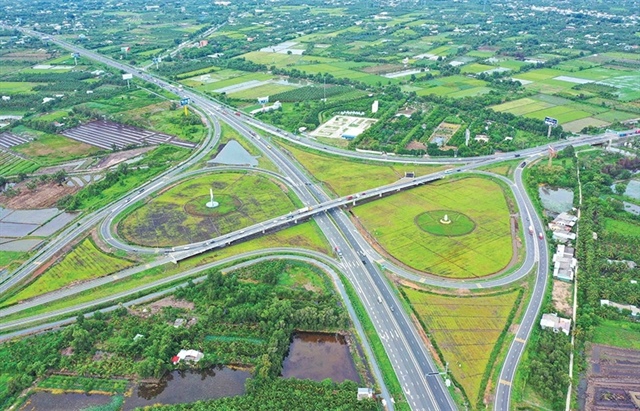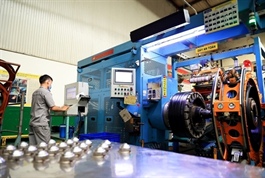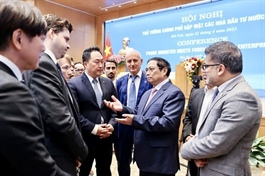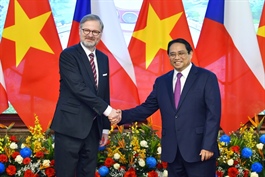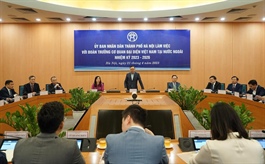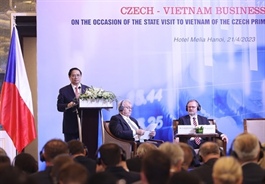US enterprises remain confident in Vietnam’s long-term economic growth
US enterprises remain confident in Vietnam’s long-term economic growth
The United States’ firms doing business in Vietnam have affirmed that they are willing to accompany Ho Chi Minh City and the Southeast Asian country as a whole to develop the southern metropolis into an intellectual and hi-tech destination, heard a meeting in the city on Tuesday.

The city is pooling opinions and suggestions from firms, associations, and economic experts for a project to beef up the efficiency of foreign direct investment attraction in the 2023-25 period with a vision toward 2030 to boost its economic growth, Ho Chi Minh City chairman Phan Van Mai told a dialogue between city leaders and the American Chamber of Commerce in Vietnam (AmCham Vietnam).
The project is aimed at turning Ho Chi Minh City into a modern service-industry city, a digital economic and social center, and a financial, economic, commercial, technology, and cultural hub in Southeast Asia by 2030.
“The city always attaches much significance to its responsibility for accompanying local and international enterprises and improving infrastructure, policies, manpower, and the business climate to back the production and business development of the corporate community here,” Mai said.
Speaking at the dialogue, Gregory Testerman, chairman of AmCham Vietnam, said that American firms in Vietnam are still confident in the country’s long-term economic growth.
However, Ho Chi Minh City and Vietnam are facing big challenges caused by high risks of economic depression in the United States, North America, and Europe.
U.S. firms are showing much interest in the city’s plan to call for investment in high technology and innovation in Thu Duc City, and its project to build a financial hub in the region and the world as well, said Testerman.
U.S. firms join hands with Ho Chi Minh City to grasp new opportunities
American businesses expected Ho Chi Minh City to open a wider door for foreign investors to tap the financial market.
They also suggested the city should focus on sustainable development as foreign investment tends to flow into destinations that meet high standards and requirements on environmental protection, administration, and social development.
The AmCham Vietnam representative also proposed the city continue improving visa issuance steps to make life easier for foreign investors to enter the city so as not to lose any foreign investment.
This time is very meaningful and important to the Vietnam-U.S. relations, said Susan Burns, U.S. Consul General in Ho Chi Minh City.
Last week, two U.S. secretaries visited Vietnam, while a new U.S. embassy compound got off the ground in Hanoi, she added.
“U.S. firms have played a key role in the growth of bilateral relations," Burns said.
"AmCham Vietnam in Ho Chi Minh City has operated for 27 years since the establishment of bilateral ties.
"AmCham has over 2,000 members, pouring billions of U.S. dollars into the city.
"The investment has helped the city’s products join the global supply chain and created jobs for local workers, boosting innovation in the city."
Despite several challenges, in the coming time, U.S. firms will always accompany the city to weather short-term difficulties and seize long-term opportunities to transform Ho Chi Minh City into an intellectual and hi-tech destination.
At the dialogue, city leaders also answered questions from American firms about funds, financial services, digital economy, production, logistics, energy, supply chains, healthcare, and education.






